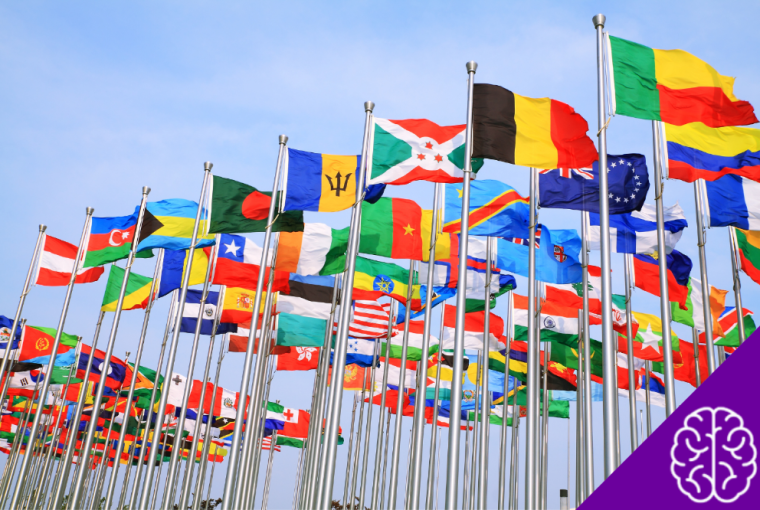Dreaming of a second passport? While obtaining citizenship in a foreign country might seem like an impossible bureaucratic maze, some nations have surprisingly manageable naturalization processes.
Recent research by platform Remitly analyzed citizenship test success rates and application requirements across various countries, revealing where your chances of becoming a naturalized citizen are highest.
The study examined everything from test difficulty to approval rates, painting a clear picture of which destinations offer the most realistic path to citizenship. Whether you’re seeking better economic opportunities, political stability, or simply a change of scenery, understanding these processes can help you make informed decisions about your future.
The Methodology Behind the Rankings
Before diving into the rankings, it’s important to understand how these countries were evaluated. The research focused primarily on citizenship test pass rates and the complexity of naturalization requirements.
Countries were ranked based on how many applicants successfully complete their citizenship tests and obtain naturalization.
The data reveals significant variations between nations. While some countries maintain extremely high standards with low pass rates, others have streamlined their processes to welcome new citizens more readily.
7. Canada: The Most Challenging Path
Despite its reputation as a welcoming nation, Canada presents the steepest challenge for prospective citizens. Only 7% of candidates pass the citizenship test, making it the most difficult country on this list.
The Canadian citizenship test consists of 20 questions covering the country’s rights, responsibilities, history, geography, economy, government, laws, and national symbols.
Applicants in Quebec face additional requirements, including demonstrating French language proficiency for certain visas.
The low pass rate reflects Canada’s rigorous standards and comprehensive test content. Candidates must demonstrate deep knowledge of Canadian society and values, not just basic information.
6. United Kingdom: Historical and Cultural Mastery Required
The United Kingdom maintains a 42% approval rate for citizenship applications, requiring candidates to pass the “Life in the UK” test. This examination covers moral education, civic responsibility, legislation, history, politics, and culture.
Applicants have 45 minutes to answer 24 questions, testing their understanding of British society at multiple levels. The test goes beyond basic facts, requiring genuine comprehension of UK cultural norms and governmental systems.
The relatively moderate pass rate suggests that while challenging, the UK test is more achievable than Canada’s examination with proper preparation.
5. Spain: Language Plus Constitutional Knowledge
Spain achieves a 61% approval rate for citizenship applications, combining language requirements with cultural testing.
Candidates must present a Spanish proficiency certificate and pass the Constitutional and Sociocultural Knowledge of Spain (CCSE) exam.
The CCSE evaluates understanding of the Spanish constitution and the country’s social and cultural reality.
This dual requirement ensures new citizens can both communicate effectively and understand Spain’s governmental and social structures.
The higher pass rate compared to previous countries suggests Spain’s approach, while thorough, is more accessible to dedicated applicants.
4. France: Personal Assessment Over Formal Testing
France also maintains a 61% success rate, but takes a different approach to language evaluation. Rather than requiring formal proficiency certificates, French authorities assess communication abilities through personal interviews during the citizenship application process.
This method allows officials to evaluate practical communication skills in real-world contexts. The interview format can be less intimidating than formal testing, potentially explaining the reasonable success rate.
The personal interview system demonstrates France’s preference for assessing practical integration rather than academic test performance.
3. United States: Multiple Pathways, High Success
The United States offers various routes to citizenship, including marriage to a US citizen, military service, or holding a green card for at least five years.
Once eligible, applicants face an oral examination featuring 128 questions about American government and history.
Despite the comprehensive question pool, the US achieves an impressive 93% approval rate. This high success rate likely reflects the multiple qualification pathways and the oral format, which may be less intimidating than written examinations.
The American system’s flexibility in qualification routes combined with its straightforward testing format creates multiple opportunities for success.
2. Germany: Structured Excellence
Germany demonstrates exceptional efficiency with a 95% approval rate for its citizenship test, called the Einbürgerungstest.
The one-hour examination includes 33 questions: 30 about Germany and life in the country, plus three specific to the applicant’s German state.
The high pass rate suggests Germany has refined its testing process to be both comprehensive and achievable. The structured approach, with clear geographic divisions in the questioning, helps applicants prepare effectively.
Germany’s success rate indicates that systematic preparation for their well-defined test format yields positive results for most candidates.
1. Australia: The Most Achievable Citizenship Test
Australia tops the list with an outstanding 96% approval rate, making it the most accessible destination for citizenship seekers.
The computer-based test randomly selects 20 questions, requiring correct answers to at least 15.
The high success rate reflects Australia’s streamlined approach to citizenship testing. The random question selection and clear passing threshold (75% correct) create a fair but manageable standard.
Australia’s system demonstrates that effective citizenship testing doesn’t require impossibly high barriers. Their approach successfully evaluates civic knowledge while maintaining accessibility.
What These Rankings Really Mean
These statistics reveal important insights about different countries’ approaches to naturalization. Higher pass rates don’t necessarily indicate easier tests, but rather more achievable standards and better-designed processes.
Countries with moderate approval rates often provide clearer preparation resources and more predictable testing formats. Meanwhile, nations with very low pass rates may have unrealistic expectations or poorly designed evaluation systems.
The variation also reflects different philosophical approaches to citizenship. Some countries view naturalization as an exclusive privilege requiring exceptional demonstration of knowledge, while others see it as a natural progression for committed long-term residents.
Preparing for Success
Regardless of your chosen destination, successful citizenship applications require thorough preparation. Understanding the specific requirements, test format, and cultural expectations for your target country significantly improves your chances.
Language proficiency remains crucial across all destinations, even where not formally tested. Cultural integration and genuine understanding of your chosen country’s values, history, and systems prove essential for long-term success.
Research preparation resources, practice tests, and community support groups available in your target country. Many nations provide official study guides and practice materials to help applicants succeed.
Your Path Forward!
Obtaining citizenship in a foreign country represents a significant life decision requiring careful planning and commitment.
These rankings provide valuable insight into where your efforts might yield the best results, but remember that pass rates tell only part of the story.
Consider factors beyond test difficulty, including residency requirements, processing times, dual citizenship policies, and overall quality of life in your potential new home.
The “easiest” citizenship test means little if the country doesn’t align with your personal and professional goals.
Start by researching the complete naturalization requirements for countries that interest you. Understanding the full process—from initial residency to final citizenship ceremony—will help you make the best choice for your circumstances and aspirations!


